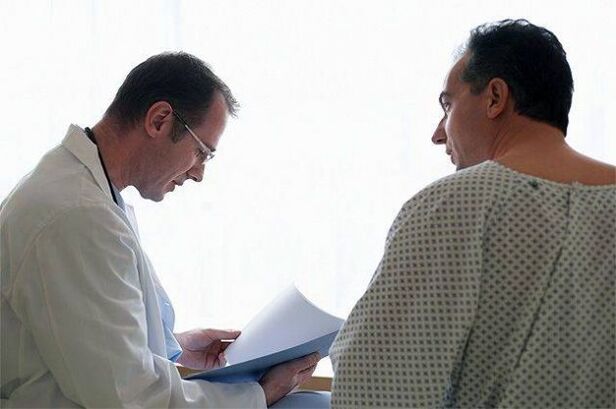
As a treatment for prostatitis, both drug treatment (oral tablets, suppositories, injections) and non-drug treatment (massage, physical therapy) can be used. There are at least 150 different drugs on the market that, according to the manufacturer, help fight prostatitis. Patients with a successful treatment plan should have a preliminary consultation with a urologist.
Before using any preparation, you should learn everything about it: what the drug contains, what are its pharmacological effects, indications and contraindications. It's also helpful to learn from the experiences of those who have gone through treatment and get feedback from recovering patients.
What is the difference between the forms of drug release
With prostatitis, the greatest danger is that the pathological microflora will continue its journey through the male reproductive system. Without appropriate treatment, patients will receive:
- epididymitis;
- balanoposthitis;
- urethritis;
- cystitis;
- pyelonephritis.
Without tests, it is not possible to determine what the cause of prostatitis is. Treatment should be based on the cause of the disease, only then can it be effective.
The main causes of prostatitis and treatments:
- Stagnation in the tissues of the prostate gland. Mild anti-inflammatory drugs are prescribed, the use of antibiotics is not recommended. A good effect is given to stimulate the activity of the blood and lymphatic vessels that feed the prostate.
- infection. This is the most dangerous of the possible forms of the disease. Strong antibiotics are required, otherwise the inflammatory process will spread through the urinary system and cover the urethra, bladder and kidneys. As the infection progresses through the reproductive system, the testicles and shaft of the penis are affected. In the future will be impotence, acute infectious prostatitis and acute pyelonephritis. On an outpatient basis, patients receive antibacterial and immunomodulatory drugs, while in the hospital, a course of powerful immunostimulants and targeted antibiotics against specific pathogensbody. Treatment takes place under the control of tests.
- Viral infection. Rarely, immune system support is required. Medicine cannot give any specific remedy, except taking non-steroidal anti-inflammatory drugs.
- Malignant and benign tumors, prostatic hyperplasia. In this case, in addition to medication, the help of a surgeon may be needed. After the diffuse or nodular pathological process is eliminated, the state of the prostate gland normalizes.
According to the form of release, the following drugs for prostatitis are distinguished:
- Injections. They are used in hospitals, in severe cases they help to quickly stop the inflammatory process in the tissues of the prostate gland.
- Infiltration. This term refers to the introduction of a drug into the prostate gland through the urethral lumen. This procedure is usually performed by a urologist. Approximately 5 ml of the drug is injected by volume.
- Candle. The most popular home treatment, a very convenient and popular release form. All drugs for the treatment of prostatitis are produced in the form of candles: analgesic, antiseptic, vasodilator, antibacterial, immunostimulating and others. The course of application of suppositories should be from 5 to 21 days, after the end of treatment the patient must pass a controlled urine test.
- Tablet. In some cases, systemic drugs should be used. This form of release has unconditional advantages: with prostatitis against the background of genital infection, several foci of the pathological process can be destroyed simultaneously.
- Circuit. Classic treatment. It involves affecting the prostate gland through the wall of the rectum. This is a very safe and convenient method, with the only drawback being preliminary bowel emptying. Therapeutic enema is different from the usual composition and low dosage.
- Ointment. They are relatively rarely used in the treatment of prostatitis because their application to the perineum is not convenient.
At the same time, you can use different forms of drug release, for example, tablets and suppositories. The choice of treatment strategy should be guided by the recommendations of the attending physician.
Attention! Tests of control should be performed no earlier than 2 weeks after the end of the last administration of the drug. Patients treated without this system are at high risk for chronic prostatitis and impotence.
The most popular and cheapest drugs
The prices of different drug groups have significant differences, and it is also important to pay attention to where to buy drugs. It is always cheaper at large drugstore chains and online pharmacies than at small and obscure pharmacies.
Reality! The doctor does not prescribe the specific name of the drug, he indicates the active ingredient. The doctor's prescription is decoded by the pharmacist. This specialist makes a profit selling an expensive drug, so patients should ask about inexpensive analogues.
Separately, it is worth highlighting a class of drugs for the treatment of prostatitis such as alpha blockers. The drug affects the hormonal processes that occur in the male reproductive system and helps to eliminate predisposing factors for inflammation and swelling of the prostate gland. Because the drug interferes with chemical reactions in which testosterone is involved, it should be checked by a urologist before use.
Attention! There are a number of products that reduce the effectiveness of alpha blockers.
Diet is a mandatory part of treatment, otherwise the results will be very disappointing.
What do people say?

Patients who have undergone analytic therapy and regularly consult with their doctor believe that inexpensive drugs for prostatitis are no less effective than other drugs. their expensive drugs.
Man, 39 years old
Friends advised a well-known preparation for prostatitis. They praise him a lot, they say he gives great results, but somehow he can't be of any help to me. No results at all. Maybe it's time for me to see a regular urologist? Stop talking to your friends.



























